第42章 Publishing Incidents and Anecdotes (1)
One evening some literary men were dining together previous to going to a private house where a number of authors were to give readings from their books.At the table the talk turned on the carelessness with which the public reads books.Richard Harding Davis, one of the party, contended that the public read more carefully than the others believed.
It was just at the time when Du Maurier's Trilby was in every one's hands.
"Don't you believe it," said one of the diners."I'll warrant you could take a portion of some well-known story to-night and palm it off on most of your listeners as new stuff.""Done," said Davis."Come along, and I'll prove you wrong."The reading was to be at the house of John Kendrick Bangs at Yonkers.
When Davis's "turn" in the programme came, he announced that he would read a portion from an unpublished story written by himself.Immediately there was a flutter in the audience, particularly among the younger element.
Pulling a roll of manuscript out of his pocket, Davis began:
"It was a fine, sunny, showery day in April.The big studio window--"He got no farther.Almost the entire audience broke into a shout of laughter and applause.Davis had read thirteen of the opening words of Trilby.
All publishing houses employ "readers" outside of those in their own offices for the reading of manuscripts on special subjects.One of these "outside readers" was given a manuscript for criticism.He took it home and began its reading.He had finished only a hundred pages or so when, by a curious coincidence, the card of the author of the manuscript was brought to the "reader." The men were close friends.
Hastily gathering up the manuscript, the critic shoved the work into a drawer of his desk, and asked that his friend be shown in.
The evening was passed in conversation; as the visitor rose to leave, his host, rising also and seating himself on his desk, asked:
"What have you been doing lately? Haven't seen much of you.""No," said the friend."It may interest you to know that I have been turning to literary work, and have just completed what I consider to be an important book.""Really?" commented the "reader."
"Yes," went on his friend."I submitted it a few days ago to one of the big publishing houses.But, great Scott, you can never tell what these publishers will do with a thing of that sort.They give their manuscripts to all kinds of fools to read.I suppose, by this time, some idiot, who doesn't know a thing of the subject about which I have written, is sitting on my manuscript."Mechanically, the "reader" looked at the desk upon which he was sitting, thought of the manuscript lying in the drawer directly under him, and said:
"Yes, that may be.Quite likely, in fact."Of no novel was the secret of the authorship ever so well kept as was that of The Breadwinners, which, published anonymously in 1883, was the talk of literary circles for a long time, and speculation as to its authorship was renewed in the newspapers for years afterward.Bok wanted very much to find out the author's name so that he could announce it in his literary letter.He had his suspicions, but they were not well founded until an amusing little incident occurred which curiously revealed the secret to him.
Bok was waiting to see one of the members of a publishing firm when a well-known English publisher, visiting in America, was being escorted out of the office, the conversation continuing as the two gentlemen walked through the outer rooms."My chief reason," said the English publisher, as he stopped at the end of the outer office where Bok was sitting, "for hesitating at all about taking an English set of plates of the novel you speak of is because it is of anonymous authorship, a custom of writing which has grown out of all decent proportions in your country since the issue of that stupid book, The Breadwinners."As these last words were spoken, a man seated at a desk directly behind the speaker looked up, smiled, and resumed reading a document which he had dropped in to sign.A smile also spread over the countenance of the American publisher as he furtively glanced over the shoulder of the English visitor and caught the eye of the smiling man at the desk.
Bok saw the little comedy, realized at once that he had discovered the author of The Breadwinners, and stated to the publisher that he intended to use the incident in his literary letter.But it proved to be one of those heart-rending instances of a delicious morsel of news that must be withheld from the journalist's use.The publisher acknowledged that Bok had happened upon the true authorship, but placed him upon his honor to make no use of the incident.And Bok learned again the vital journalistic lesson that there are a great many things in the world that the journalist knows and yet cannot write about.He would have been years in advance of the announcement finally made that John Hay wrote the novel.
At another time, while waiting, Bok had an experience which, while interesting, was saddening instead of amusing.He was sitting in Mark Twain's sitting-room in his home in Hartford waiting for the humorist to return from a walk.Suddenly sounds of devotional singing came in through the open window from the direction of the outer conservatory.
The singing was low, yet the sad tremor in the voice seemed to give it special carrying power.
"You have quite a devotional servant," Bok said to a maid who was dusting the room.